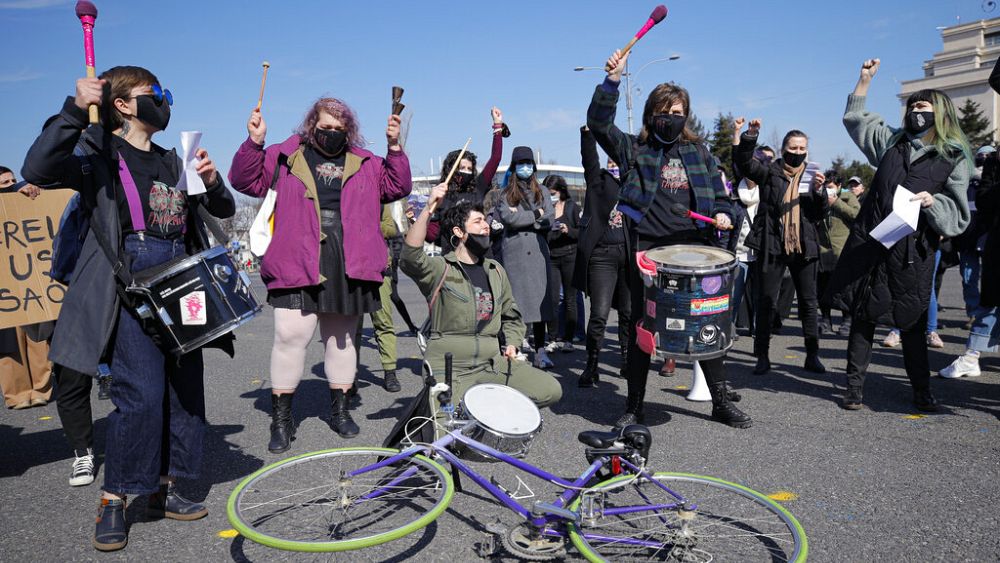
The Gender Equality Index 2021 released today (Thursday) warns that the pandemic is threatening “fragile gains” made in Europe towards gender equality.
“Europe has made fragile gains in gender equality. But big losses are emerging as a result of the COVID-19 pandemic,” said Carlien Scheele, director of the European Institute for Gender Equality (EIGE).
What’s the Gender Equality Index?
EIGE has been monitoring the advancement of gender equality throughout the European Union since 2013, measuring progress through six core domains: work, money, knowledge, time, power, and health.
Every country is given a score from 0 to 100 on each domain.
The results from this year were far from comforting: the EU scored 68 points out of 100 in this year’s Index — a “microscopic increase of just 0.6 points since last year’s edition,” EIGE said.
The agency has expressed concern about the slow pace of progress towards gender equality, with a mere increase of 4.9 points in total since 2010.
And “even that minimal progress on gender equality is threatened by the impact of the COVID-19 pandemic,” the agency insisted.
How has COVID-19 impacted gender equality?
The report noted that women were over-represented among essential and frontline workers during the pandemic, and thus more exposed to infection. Men, meanwhile, were more likely to be hospitalised if they contracted the virus.
The pandemic also impacted gender inequalities in the home, with women bearing the brunt of unpaid care work during repeated lockdowns.
Experts have also observed a “pandemic within the pandemic” of domestic violence.
“Cohabitation brought about by lockdowns and economic and labour instability are considered stressors associated with an increase in intimate partner violence,” the report noted, citing previous studies.
The economic fallout of the pandemic is also “lasting longer for women”, said Scheele.
“Our index findings can help Europe’s leaders tackle the different effects of the pandemic on women and men and alleviate the unequal short and long-term impact,” the EIGE director insisted.
Which EU countries are leading the way on gender equality?
The new report highlighted wide disparities among EU countries on the road to gender equality.
Sweden and Denmark retained their position as Europe’s top gender equality performers, with respectively 83.9 and 77.8 points.
The two Scandinavian countries were followed by the Netherlands, which took over Finland and France to claim third place.
“Luxembourg, Lithuania, and the Netherlands have improved the most since last year’s edition,” EIGE noted.
“Slovenia was the only country that went backwards.”